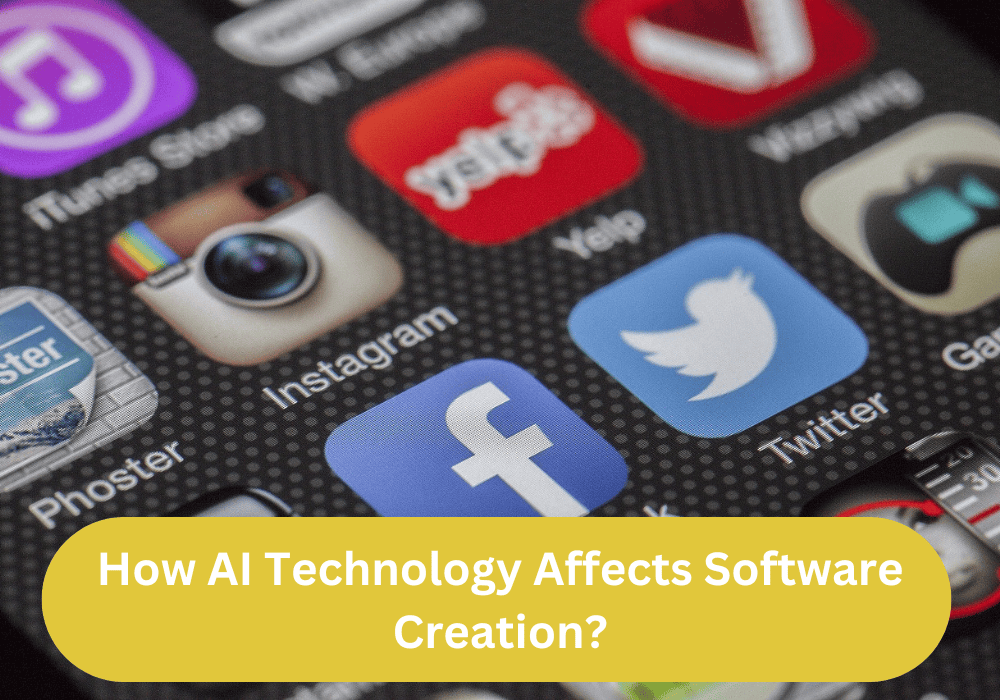Artificial Intelligence (AI) has profoundly impacted the realm of software creation, introducing new paradigms in the development, deployment, and maintenance of software systems. From revolutionizing the traditional methodologies to fostering the birth of autonomous and intelligent applications, AI has become a cornerstone in the software industry.
Integrating AI in Software Development Lifecycle
AI-driven approaches have been integrated into various stages of the software development lifecycle (SDLC). During the planning phase, AI models can predict project timelines and outcomes based on historical data, allowing for more accurate forecasting and resource allocation. In the design stage, AI algorithms assist in creating more user-friendly interfaces and experiences by analyzing user behavior and preferences. For coding, AI-powered tools provide developers with code completion suggestions, bug detection, and correction, significantly speeding up the development process and enhancing code quality.
AI in Testing and Quality Assurance
Testing is another area where AI has made a significant impact. Automated testing tools, powered by machine learning, can generate and execute test cases, detect anomalies, and even predict where bugs are most likely to occur. These tools learn from previous iterations, becoming more efficient over time at identifying potential issues. AI also supports performance testing by simulating real-world usage scenarios and identifying bottlenecks.
DevOps and Continuous Integration/Continuous Deployment (CI/CD)
In the DevOps field, AI is facilitating continuous integration and continuous deployment by automating the build and deployment processes. AI systems can analyze code repositories to identify integration issues and predict the impact of new code commits on the overall system. By predicting failures before deployment, AI enhances the reliability of software releases.
AI for Personalized User Experiences
Beyond the development process, AI enables the creation of software that can offer personalized user experiences. Applications can now learn from user interactions to tailor content, recommend actions, and predict user needs without explicit programming for these features. This adaptability not only improves user engagement but also opens new avenues for software applications.
Software Maintenance and Evolution with AI
Maintenance, traditionally a time-consuming and costly phase, has also benefited from AI. Predictive models analyze application performance data and user feedback to forecast potential downtimes and suggest improvements. AI-driven analytics tools can sift through logs and metrics to preemptively identify and rectify issues, thus reducing downtime and improving service quality.
Challenges and Ethical Considerations
The fusion of AI in software creation is not without challenges. The black-box nature of certain AI systems can make it difficult to understand and trust the decision-making process. This opacity necessitates a greater focus on explainability and accountability in AI-driven systems. Moreover, the reliance on data for training AI models raises concerns about privacy, bias, and security, which must be addressed through robust ethical frameworks and practices.
The Future of AI in Software Engineering
Looking forward, the AI evolution suggests a future where software can self-adapt and self-optimize based on real-time data, blurring the lines between software creation and operation. The role of the software engineer is also evolving, with a greater focus on overseeing AI systems and integrating human creativity with machine efficiency.
Conclusion
AI technology has become an indispensable ally in the software industry, offering improvements in efficiency, quality, and performance. As AI continues to evolve, it promises to unlock new capabilities in software creation, leading to more intelligent, autonomous, and adaptive software systems that can meet the complex and dynamic needs of users and businesses alike. The synergy between human developers and AI will shape the future of software, driving innovation and transformation across industries.
This field’s growth will undoubtedly require new skills and approaches from software professionals, as well as thoughtful consideration of the ethical implications of AI-driven software systems. As we march towards increasingly sophisticated AI integration in software creation, the interplay between technological advancements and human oversight will become more critical than ever.

